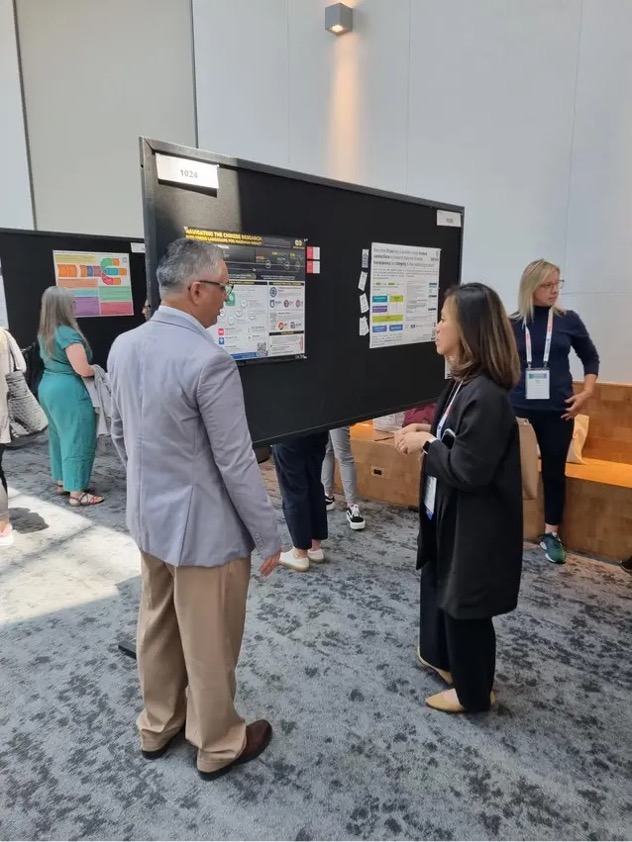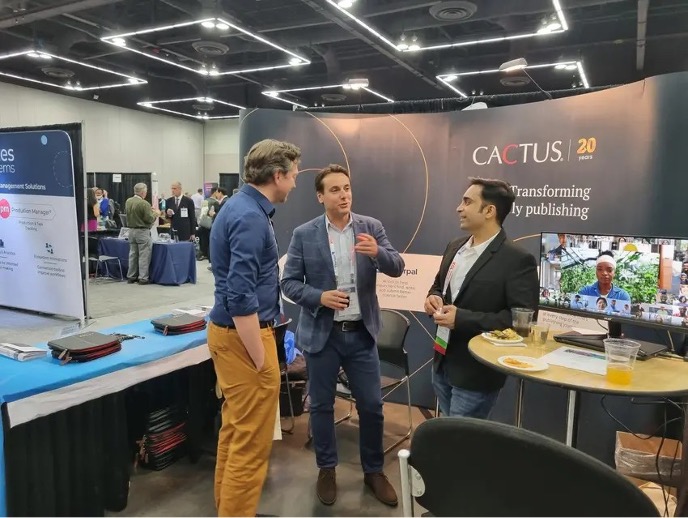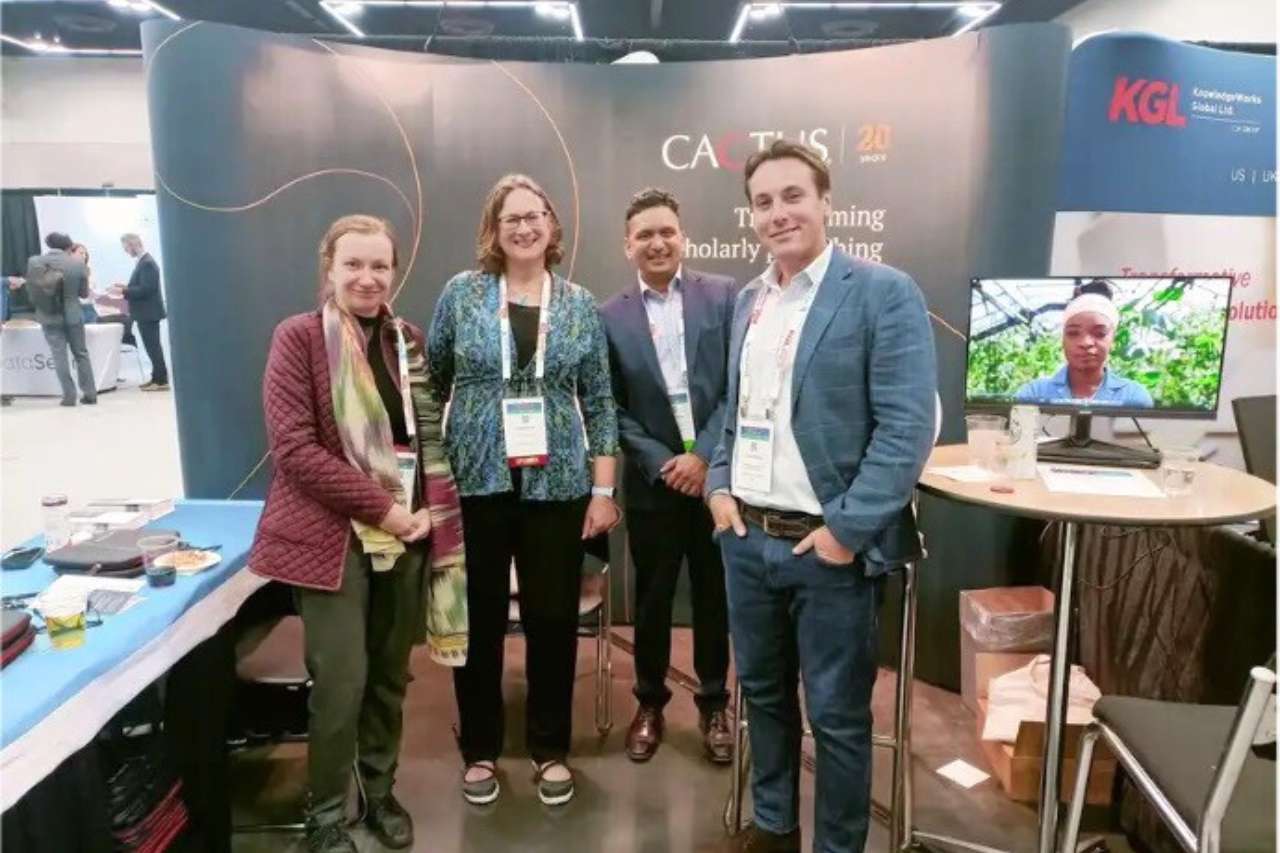CACTUS participated in the biggest conference in academia last week. The 45th Annual Meeting of the Society of Scholarly Publishing (SSP) was organized in Portland this year and Nishchay Shah, Chirag Patel, Pablo Palmeiro, and I represented CACTUS.
The sessions covered a lot of ground under the themes of transformation, trust, and transparency. In particular, there was much focus on research integrity and the use of automation/AI to improve workflow efficiency.
Both these areas are something that we at CACTUS are very passionate about, and we have plenty to offer to both our new and existing clients.
There were 2 keynotes, 20 breakout sessions, and 24 educational sessions. Dr. Elisabeth Bik delivered the main keynote. Dr. Bik is a trailblazer working toward identifying image manipulation. She is a renowned microbiologist who has become a specialist in research integrity. Dr. Bik was a researcher for 15 years at Stanford University before transitioning to become a scientific integrity expert. She reported more than 7,000 papers on the concerns of image manipulation. I had the privilege of hosting an episode with Dr. Bik on my podcast, All Things Scicomm, two weeks before the SSP event, and she was kind enough to visit our booth and meet the team.
The issue of fraudulent practices has grown exponentially over the last few months. Retractions were already an issue, but the huge proliferation over the last few months has jeopardized existing revenue models for many Publishers and Societies. In addition, there might be many fake papers that might be added to the system owing to AI and automation. While the industry waits for us and a few others to develop automated checks to support human checks, we rolled out IntegrityGUARD as a service to tackle this issue.
Regarding automation, we had our own session on AI called “Embracing the Future of Publishing with CACTUS AI solutions.” It was well-attended by approximately 80 people in the room. Nishchay and Chirag explained where we are with AI and linked it to how our solutions helped save time and costs and improve acceptance rates. We received an overwhelming response before the session through polls, at the session through questions, and in the AMA session with Nishchay. From all of the sessions that spoke about automation, I felt that our session was the most balanced. One thing is for certain – many Publishers and Societies are hungry for automated solutions, which is evident from the overwhelming response that Pablo got on one of his posts about rolling out an AI detector.
Chirag was invited to two panels regarding SDGs, open science, and scholarly communications, and he also hosted our poster session titled “Navigating the Chinese research publishing landscape for maximum impact.”
The CACTUS booth was buzzing, and people were really impressed with the solutions we can offer to support the evolving author journey.
Learn more about CACTUS’s solutions: cactusglobal.com/
Or write to us here: cactusglobal.com/contact-us/




